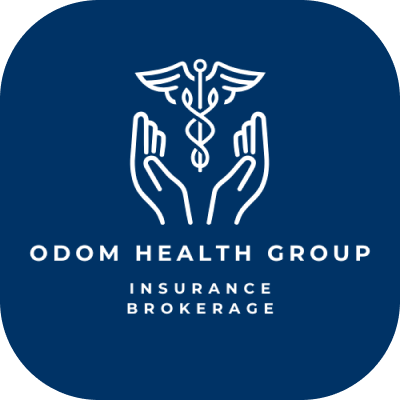Expert Insights & Tips
Our Blog
Explore our blog for valuable tips, news, and insights on life insurance. Stay informed and make confident decisions about your financial future.

The Difference Between Private and Marketplace Health Insurance: A Comprehensive Guide
The Difference Between Private and Marketplace Health Insurance: A Comprehensive Guide
When choosing health insurance coverage, understanding the key differences between private and marketplace plans is crucial for making the right decision for your healthcare needs and budget. This guide breaks down the essential aspects of both options to help you choose the best fit.
Private Health Insurance
Private health insurance refers to plans purchased directly from insurance companies or through employers. These plans operate outside of government-run marketplaces.
Advantages
Private insurance often provides more flexibility and options in terms of coverage levels, network size, and plan types. Employer-sponsored plans typically offer competitive rates due to group buying power, with employers often covering a portion of the premium costs. Private plans may have broader provider networks and more comprehensive coverage options.
Key Features
Available year-round (no need to wait for open enrollment)
Often includes dental and vision coverage
May offer more extensive prescription drug coverage
Usually provides access to larger provider networks
Can be customized to specific needs
May have lower deductibles and out-of-pocket maximums
Potential Drawbacks
Generally more expensive if purchasing individually
May require medical underwriting outside of employer plans
No guarantee of essential health benefits
No income-based subsidies available
Marketplace Health Insurance
Marketplace insurance refers to plans available through government-run exchanges established by the Affordable Care Act (ACA).
Advantages
Marketplace plans provide guaranteed coverage regardless of pre-existing conditions and offer income-based subsidies to help make insurance more affordable. All plans must cover essential health benefits as defined by the ACA.
Key Features
Income-based premium tax credits and cost-sharing reductions
Guaranteed coverage of essential health benefits
No denial for pre-existing conditions
Standardized plan categories (Bronze, Silver, Gold, Platinum)
Clear comparison tools for shopping
Protected by ACA regulations
Potential Drawbacks
Limited enrollment periods (unless qualifying life event)
May have narrower provider networks
Could be more expensive without subsidies
Less flexibility in plan design
Making Your Decision
Consider these factors when choosing between private and marketplace insurance:
Income Level
If your income falls between 100-400% of the federal poverty level, marketplace plans might be more affordable due to available subsidies
Higher incomes may benefit more from private insurance options
Employment Status
If your employer offers affordable health insurance, this is often the most cost-effective choice
Self-employed individuals might find better rates through the marketplace
Health Needs
Consider your current health status and anticipated medical needs
Factor in any preferred healthcare providers or specialists
Review prescription drug coverage requirements
Budget Considerations
Compare total costs including premiums, deductibles, and out-of-pocket maximums
Factor in potential subsidies for marketplace plans
Consider the financial impact of unexpected medical expenses
Flexibility Requirements
Evaluate the importance of provider choice
Consider whether you need the ability to change plans outside of open enrollment
Think about additional coverage needs (dental, vision, etc.)
Special Considerations
Family Coverage
Family situations can significantly impact your choice:
Family size affects subsidy eligibility in marketplace plans
Consider whether all family members have similar health needs
Evaluate the cost of adding dependents to different plan types
Health Status
Your current health status and medical history matter:
Pre-existing conditions are covered under both types, but marketplace plans guarantee coverage
Complex medical needs might benefit from more comprehensive private plans
Consider prescription drug coverage requirements
Geographic Location
Your location can affect your options:
Available marketplace plans vary by state
Provider networks may be different between private and marketplace plans
Rural areas might have limited choices in either category
Questions to Ask Before Deciding
What are my expected medical needs for the coming year?
Can I afford the monthly premiums and potential out-of-pocket costs?
Are my preferred healthcare providers in-network?
Do I qualify for marketplace subsidies?
What prescription drugs do I need, and how are they covered?
Do I need additional coverage like dental or vision?
How important is flexibility in choosing providers?
Annual Review
Remember that health insurance needs can change over time. It's important to review your coverage annually and consider:
Changes in health status or expected medical needs
Income changes that might affect subsidy eligibility
Updates to available plans and pricing
Changes in provider networks
New healthcare requirements or preferences
This guide serves as a starting point for understanding your health insurance options. Consider consulting with a licensed insurance agent or healthcare navigator for personalized advice based on your specific situation.
Frequently Asked Questions
How do I know which health insurance plan is right for me?
We start by understanding your specific needs—whether it’s affordable premiums, comprehensive coverage, or access to specific providers. Our experts will compare plans on private and public side of the market and guide you to the best option for your budget and health requirements.
Can I keep my current doctor with a new health insurance plan?
Yes! During your consultation, we ensure your preferred doctors and providers are in-network with the plans we recommend. This way, you can maintain continuity in your care while saving on costs.
How much does health insurance cost?
Health insurance costs vary depending on factors like your health history, age, location, and the type of plan you choose. We’ll help you find options with best coverage for your needs in your your budget.
What if I have preexisting conditions?
We specialize in finding plans that accommodate preexisting conditions, such as ACA-compliant plans that provide full coverage without additional costs due to your medical history.
What providers do you work with?
We partner with leading providers like UnitedHealthcare, Aetna, Cigna, and Blue Cross Blue Shield to ensure you get access to trusted plans with the best coverage.
Can you help me with the application process?
Yes, we provide step-by-step assistance throughout the entire process, from selecting a plan to submitting your application. We’re here to answer all your questions and make sure everything is handled smoothly.

We're Here to Help
Have questions or need assistance? Reach out to us anytime. Your health and peace of mind are our priority.
